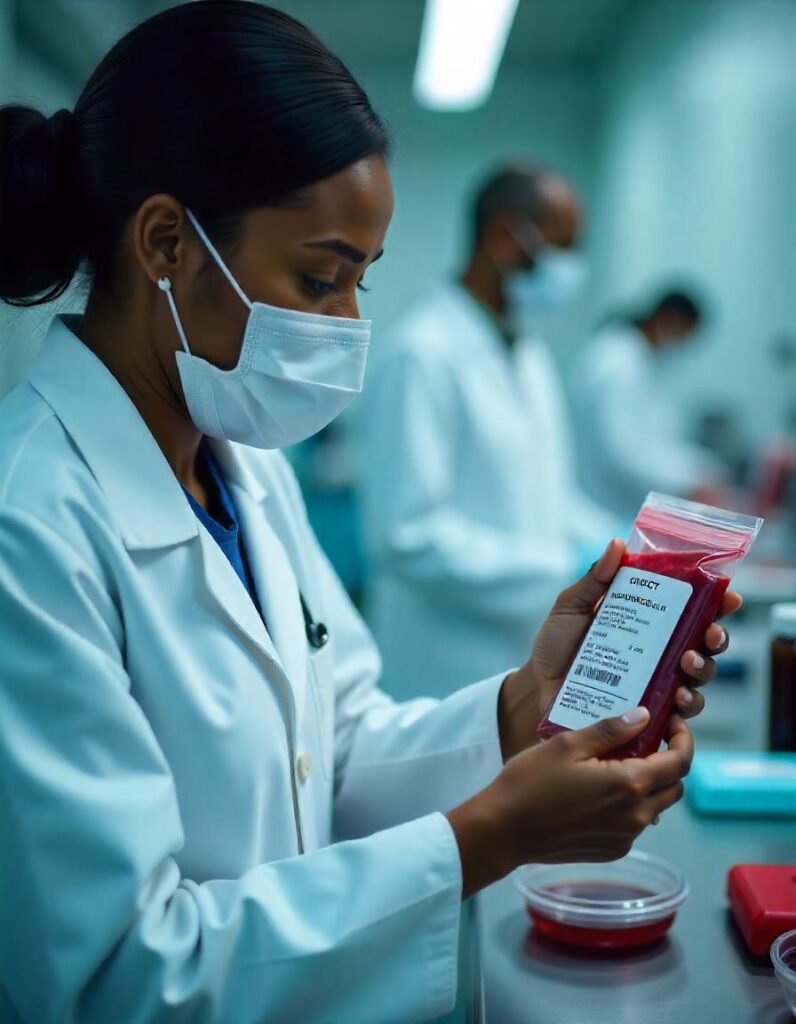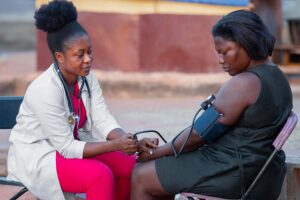Blood banks play an essential role in saving lives across Nigeria. Every drop of blood you donate can be a lifeline for someone in urgent need. But do you truly know where your donation goes and who it helps? Understanding the importance of blood donation in Nigeria can inspire you to take action, help save lives,and support your community.
Why Blood Donation Matters: Saving Lives with Every Drop
Blood donation is one of the most generous acts anyone can offer. It’s simple, yet its impact is immense. Whether it’s during a blood drive, a surgery, or emergency care, the need for blood is constant. In a country like Nigeria, where medical resources can be stretched thin, blood banks become the saving grace. Without blood donations, hospitals would face significant challenges in treating trauma victims, patients with anemia, or those undergoing surgery.
A single blood donation can save up to three lives. It’s easy to overlook the importance of this act, but when you donate, your blood is separated into different components—plasma donation, platelets, and red blood cells—each serving a unique purpose for various medical conditions. Your plasma donation can help burn victims, people suffering from liver diseases, or even individuals needing stem cell donation.
The Science Behind Blood Donation: Blood Groups, Rhesus Factor, and Genotype
When donating blood, it’s important to understand the role of your blood group and rhesus factor. Blood banks classify donations based on your blood group (A, B, AB, O) and rhesus factor (positive or negative). This ensures that the blood plasma and platelet donations match the recipient’s needs.
Moreover, your genotype is crucial when it comes to donation compatibility. Blood types, such as O positive, are universal and highly sought after. Those with O negative blood, often called “universal donors,” are also invaluable to the blood donation process. Whether you’re donating red blood cells, plasma, or platelets, knowing your blood group and rhesus factor helps ensure the donation reaches the right person.
The Lifesaving Role of Plasma and Platelet Donation
While red blood cell donation often grabs the spotlight, plasma donation is equally critical. Plasma is the clear, yellowish fluid that transports nutrients, hormones, and waste products throughout the body. By donating plasma, you’re providing treatment for individuals suffering from severe burns, liver conditions, or even clotting disorders.
Similarly, platelet donation is essential for cancer patients, individuals with bleeding disorders, and those undergoing chemotherapy. The need for platelet donation is ever-increasing, as patients undergoing treatment often experience low platelet counts, making platelet donation vital in sustaining their health and wellbeing.
What Happens After You Donate? Where Does Your Donation Go?

Once you donate, your blood is carefully processed in a blood bank. The blood is separated into its various components—red blood cells, plasma, and platelets—each serving a different need. Plasma centers or blood plasma donation centers work to store and distribute these components to the right patients, ensuring that individuals receive the specific type of blood component they need.
In Nigeria, hospitals, clinics, and trauma centers rely on blood donation websites, local blood banks, and mobile blood drives to gather donations. Without the generosity of people like you, these centers would not be able to meet the constant demand for blood products.
Risks of Not Donating: A Call to Action
The risks of not donating blood are clear. Without adequate blood donation, hospitals face shortages that can delay life-saving treatments. The absence of sufficient blood supplies can lead to increased mortality rates, particularly in accident cases, surgeries, and chronic illnesses. It’s not just about filling a need—it’s about ensuring every life that requires a blood transfusion has access to it when necessary.
If you’re considering selling plasma or selling blood plasma, it’s essential to know the ethical guidelines and legal regulations in Nigeria. While selling plasma is a practice in some parts of the world, Oneus provides authentic blood donation services, ensuring that your contribution supports community health without profit-driven motives.
How You Can Help: Giving Blood and Donating Plasma
The process of donating blood is straightforward. Typically, the donation takes around 30-45 minutes, and the staff at blood banks make sure you’re comfortable throughout. Whether you’re giving blood, donating plasma, or offering platelets, you’ll be making an enormous impact.
Consider becoming a regular donor, as blood banks are constantly in need of contributions. Oneus has made it easier than ever to book a donation appointment, and their team is committed to offering a seamless donation experience. Plus, they ensure every donor is educated about the process, including potential benefits such as improving skin health and helping to reduce iron levels in the body.
If you’re interested in bone marrow donation or umbilical cord blood banking, Oneus also offers guidance and resources for these life-changing donations.
Give Blood, Save a Life – Book Your Donation Now!
Your blood can be the difference between life and death for someone in need. Make a conscious decision to donate, whether it’s for blood plasma, platelet donation, or blood cord banking. Take action today!
Contact Oneus at:
-
Email: info@oneusng.com
-
Phone: +234 902 168 2822
-
Visit: www.oneusng.com
Join the lifesaving community today, and remember: Give Blood, Save a Life.




